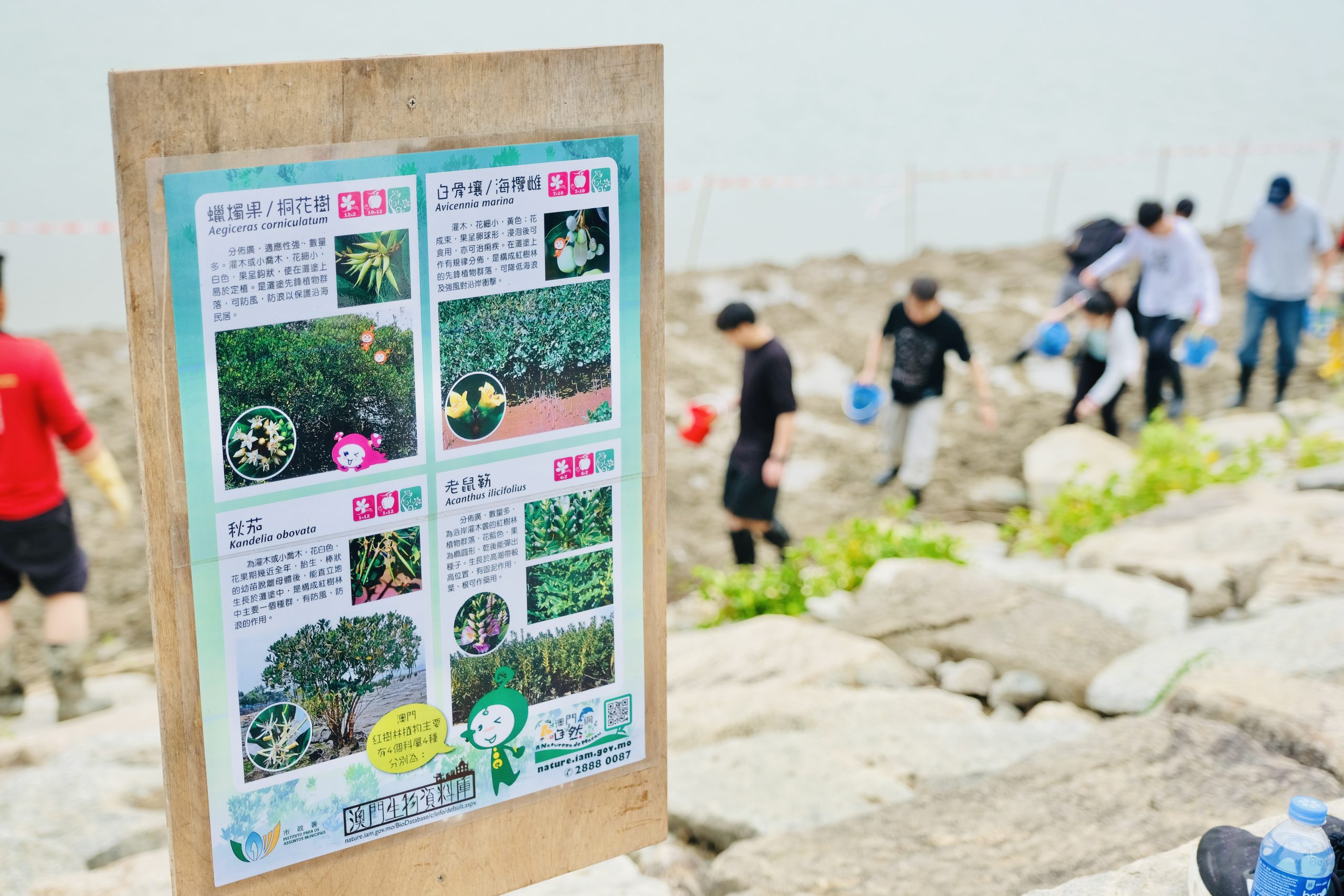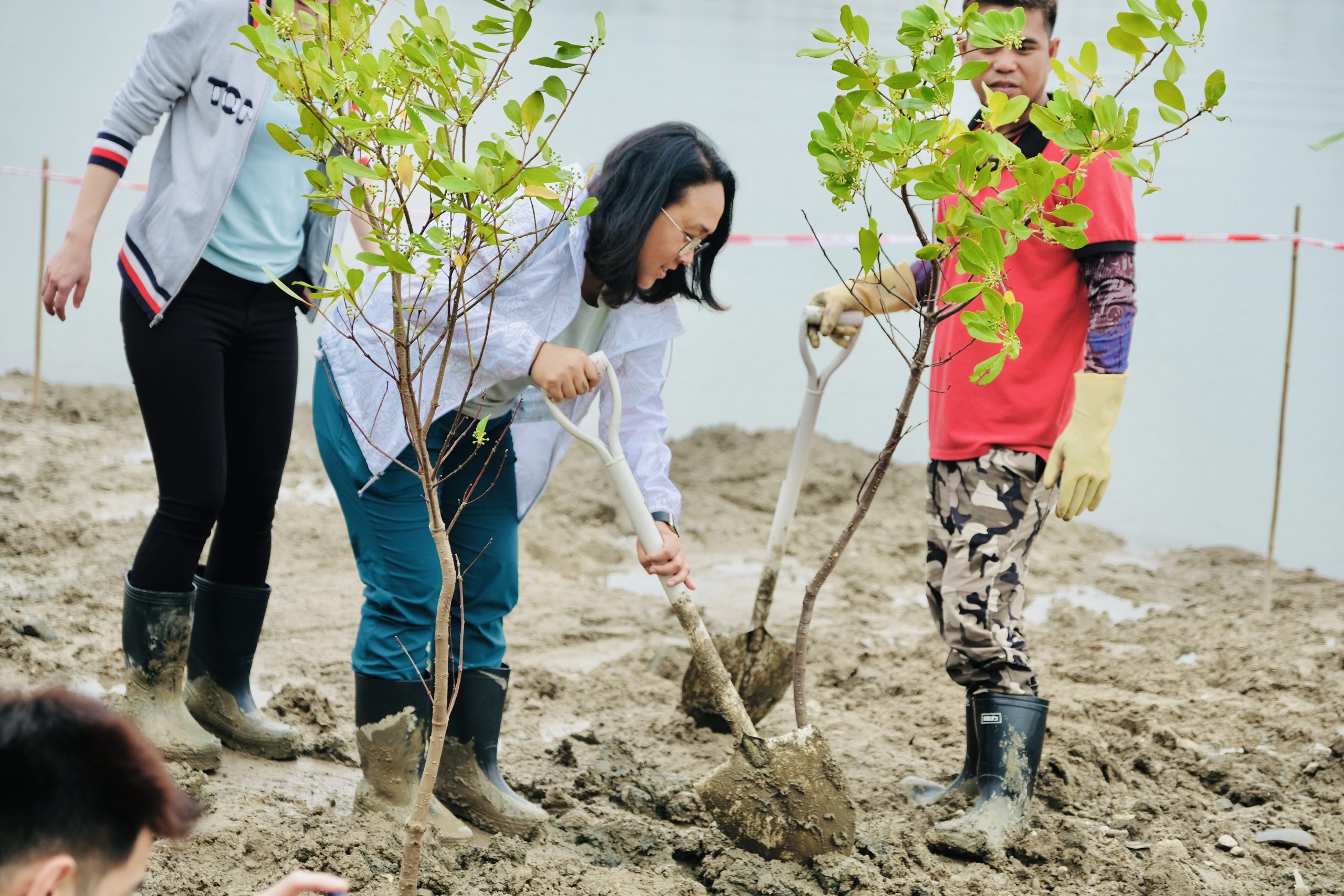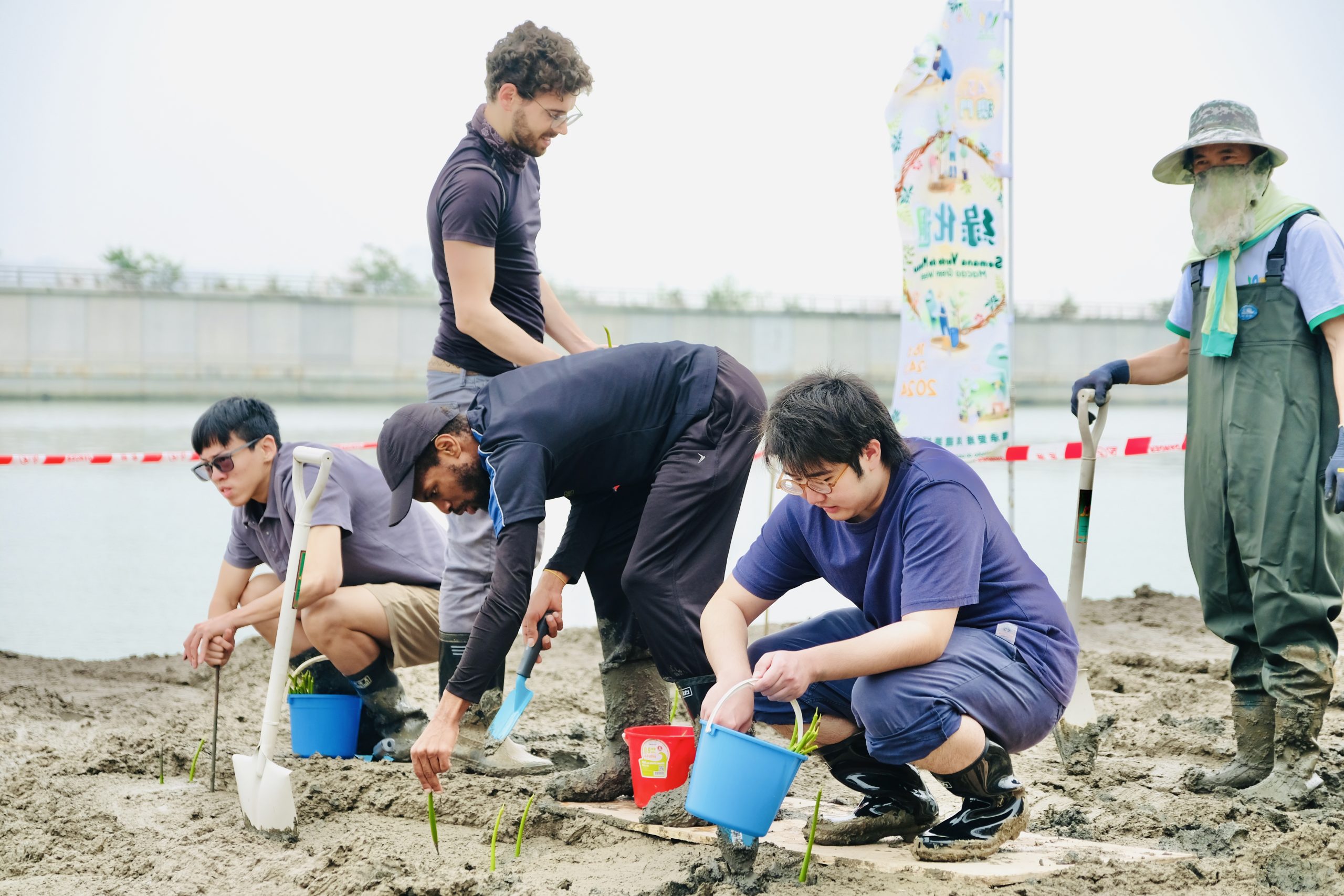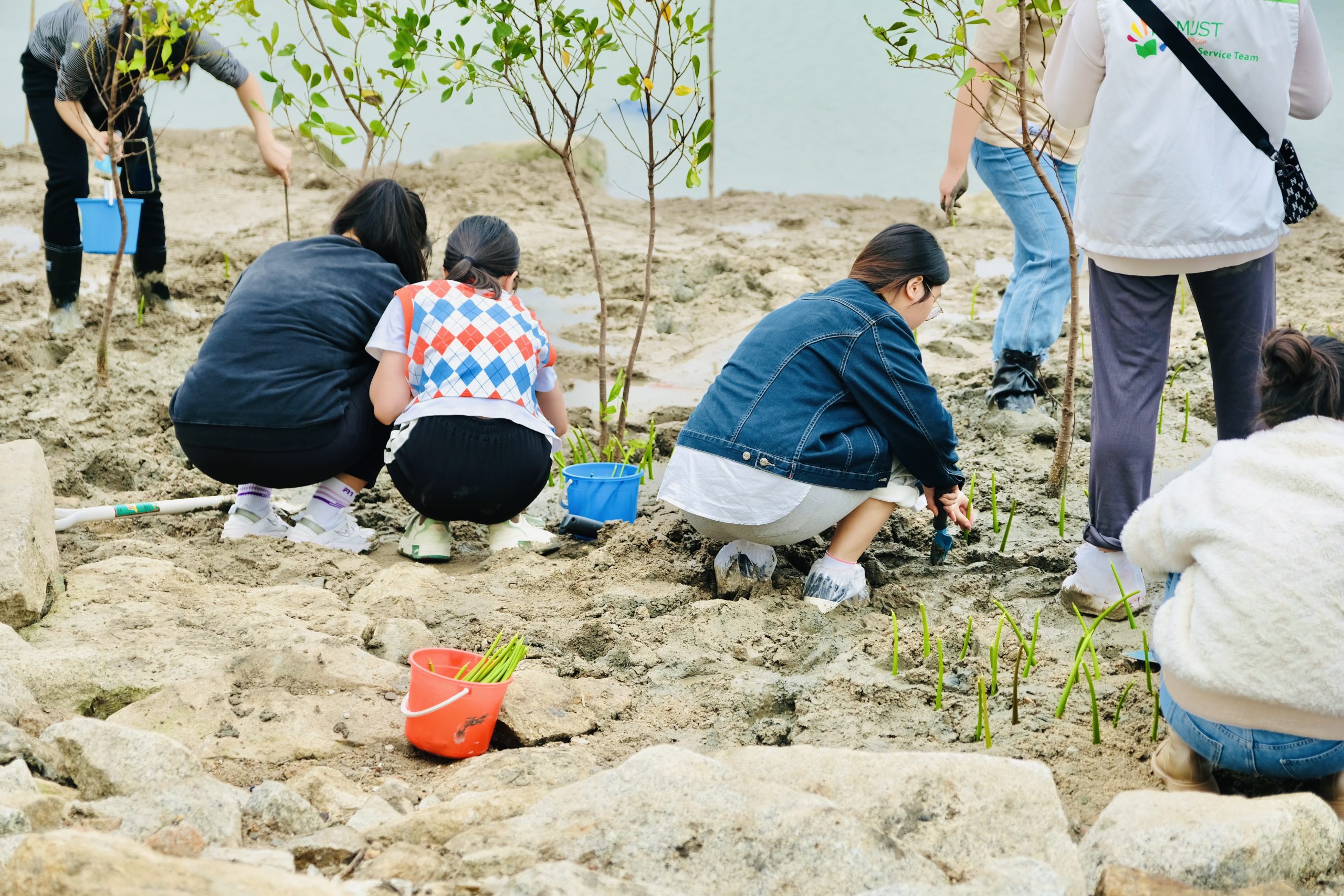Turning the Tide: 900 Mangroves Saplings Planted

Turning the Tide: 900 Mangroves Saplings Planted
20
Mar
20/03/2024
During this year’s Green Week, 900 mangrove saplings were planted along the Taipa coastline through the organization of the Municipal Affairs Bureau (IAM) and participation of the University of Saint Joseph.
Another significant environmental initiative took place on 17th March, 2024, as 900 mangrove saplings were planted through the organization of the Municipal Affairs Bureau (IAM) and participation of 21 dedicated staff and students from the University of Saint Joseph (USJ).
Coordinated with IAM by Prof. Karen Tagulao of USJ’s Institute of Science and Environment (ISE) and the USJ Green Committee, this annual event emphasizes the ongoing commitment to restore and protect local wetland ecosystems. The selected species – Kandelia obovata, Aegiceras corniculatum, and Avicennia marina – were strategically chosen to enhance biodiversity and ecosystem resilience.
Such actions are crucial in addressing global challenges outlined in the United Nations Sustainable Development Goals (SDGs), including Sustainable Cities and Communities (SDG 11), Climate Action (SDG 13), Life Below Water (SDG 14), and Life on Land (SDG 15). By aligning with these SDGs, USJ reaffirms its commitment to fostering sustainable practices and raising environmental consciousness within the community. The significance of this initiative lies not only in the immediate impact of planting mangrove saplings but also in the long-term benefits they offer. Mangroves play a vital role as nature-based solutions, addressing issues such as climate change mitigation, coastal water pollution, and coastal protection while providing various ecosystem services like biodiversity enhancement.
The efforts of the USJ team reflect their dedication to safeguarding wetland ecosystems, which are often under-appreciated despite their critical importance. Through continued commitment and action, USJ aims to contribute significantly to the preservation and protection of our local ecosystems.














